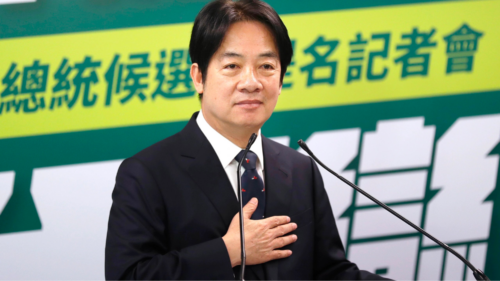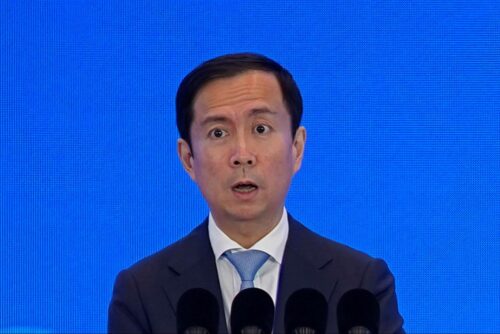50 million join Alibaba’s health insurance co-op
1. 50 million sign up for health insurance co-op through Alibaba app
In October 2018, internet giant Alibaba’s affiliate Ant Financial launched a mutual aid health insurance product called Xiānghù Bǎo” 相互宝” — literally, “mutual treasure,” hereafter XHB. Users of Alibaba services with a Sesame Credit score of 600 or higher can join the XHB collective, with the risks and expenses distributed across all members.
Today, Ant Financial announced (in Chinese) that XHB has already amassed 50 million users, with plans to reach 300 million within two years. This means, according to the company, that the user base has grown faster than the extraordinary pace set by Yu’ebao. Launched in June 2013, Yu’ebao — another service from Ant Financial — is now the world’s largest money market fund.
Some other facts about XHB:
-
188 yuan ($28) per month is the cap set by Ant Financial as a maximum fee for individual users in 2019.
-
Migrant workers comprise 47 percent of XHB’s users, according to the company, while 31 percent are from villages and small towns. It’s not clear if these are overlapping categories, but Ant Financial is emphasizing that the service is aimed at the masses rather than the urban elites.
-
100 illnesses are covered by XHB, including most cancers, coronary artery disease, paralysis, Alzheimer’s, and HIV when transmitted through blood transfusion.
Alibaba and its many companies are masters of the art of spin, so one should add a note of caution to the celebration of XHB’s 50 million milestone. The company faces many risks and guaranteed regulatory scrutiny. TechNode reports:
Such mutual aid platforms are gaining traction in China, where access to private health insurance is lacking. Other tech giants have expressed interest in the emerging healthcare business. Just yesterday, Chinese retailer Suning announced that it is testing (in Chinese) a similar mutual aid plan called “Ning Hu Bao.”
However, such mutual aid services swim in somewhat murky regulatory waters. When Ant Financial and Chinese insurance company Trust Mutual Life jointly launched Xiang Hu Bao, they promoted the healthcare service as insurance policies. A month after launching the service, Ant Financial rebranded the product to a “mutual aid plan” after regulators warned it about misleading product promotions. Unlike conventional insurance companies, the company that underwrites such mutual aid products barely bear any risks.
In November, Alibaba rival JD.com also tested a similar online mutual aid insurance plan “JD Hubao” but took it down (in Chinese) after just one day due to regulatory scrutiny.
For context on China’s healthcare system and private health insurance, see these 2017 The China Project pieces:
—Jeremy Goldkorn
2. Chinese employers might not favor U.S. university graduates
Inside Higher Ed reports that companies in China — even foreign companies in China — prefer local university graduates for entry-level positions.
-
Applicants who had graduated from U.S. universities “were 18 percent less likely to get a call back than applicants who had attended Chinese universities” according to research by Mingyu Chen, a Ph.D. student at Princeton University.
-
Going to a good school doesn’t help much: “Even applicants from the most selective U.S. universities…were 7 percent less likely to get a call back than applicants from the Chinese universities he categorized as least selective.”
-
But it could be about employee retention rather than an evaluation of skills: “Employers believe, correctly or not, that applicants from U.S. institutions have better options, making them harder to attract and retain than those educated in China,” Chen comments.
-
Also, the study only measured call-back rates for entry-level positions. Measuring career-long effects of overseas education would require a new study.
This study is contrary to the widespread perception of five or more years ago, when an American university degree, especially from an Ivy League school, was often seen as a golden ticket for landing a top job in China. But in the last couple of years, there have been more reports of Chinese students struggling to find employment when they come back home. This is part of the explanation for why colleges such as the University of Illinois at Urbana-Champaign and Arizona State are seeing declining Chinese student enrollment. There’s also the fact that in recent years, many more Chinese students have been returning to China, as the country has grown to support more jobs requiring higher education.
For more on the social and political side of the experience of Chinese students in the U.S. and what they think about returning to China, see Eric Fish’s piece on The China Project from last year: Caught in a crossfire: Chinese students abroad and the battle for their hearts.
—Lucas Niewenhuis
—–
Our whole team really appreciates your support as Access members. Please chat with us on our Slack channel or contact me anytime at jeremy@thechinaproject.com.
—Jeremy Goldkorn, Editor-in-Chief
BUSINESS AND TECHNOLOGY:
-
Chinese tech firm stands up for freedom of speech in India
Ban on TikTok app would harm free speech, China’s Bytedance tells India’s Supreme Court / Reuters
“An Indian court’s call for a ban on the popular video app TikTok will hurt free speech rights, China’s Bytedance Technology Co has said in a request for the Supreme Court to quash the directive.” -
British private schools in China
Westminster School’s Chengdu branch breaks ground / Xinhua
“Construction on the first China branch of the Westminster School, one of Britain’s leading public [i.e., private] schools, began in Chengdu, capital of southwest China’s Sichuan Province, on Tuesday.” -
Semiconductors — economic espionage in the Netherlands?
‘Chinese spies’ stole secrets from chip equipment maker ASML: Dutch newspaper FD / Reuters
“Chinese employees stole corporate secrets from Dutch semiconductor equipment maker ASML resulting in hundreds of millions of euros (dollars) in losses, leading Dutch financial newspaper Financieele Dagblad reported on Thursday.”
ASML published a press release today titled, “ASML disagrees with implication of ‘Chinese espionage,’” which begins:
ASML disagrees with any implication that it has been victim of “Chinese espionage,” as stated in an article in Dutch financial newspaper Financieele Dagblad earlier on Thursday, 11 April 2019. The article discusses the results of a public court case in the United States that ASML had initiated and won last year, in which a company called XTAL was found by a jury to have misappropriated ASML’s confidential and proprietary information and trade secrets in 2015.
“The suggestion that we were somehow victim of a national conspiracy is wrong. The facts of the matter are that we were robbed by a handful of our own employees based in Silicon Valley, who had broken the law to enrich themselves. All of this occurred several years ago. We found this out by ourselves and immediately sought legal action in public court in 2016. This was reported on in several publications after our victory in November 2018,” said ASML President and Chief Executive Officer Peter Wennink.
-
Employment and unemployment
For Chinese raised in prosperity, shrugs in the face of layoffs / NYT (porous paywall)
Keith Bradsher wonders what will happen when a generation raised in rapid economic growth encounters hard times, but seems to find the generation in question unconcerned. -
Huawei profile
Who is the man behind Huawei and why is the U.S. intelligence community so afraid of his company? / LA Times
A profile of Huawei and founder Rén Zhèngfēi 任正非. A good overview of the company and its current situation, but no new information if you’ve been following the news of the last six months. -
Pharma and murder in Heilongjiang
Chinese executive’s arrest for murder weighs on share of Sunflower Pharmaceutical / SCMP
Sunflower Pharmaceutical Group Co Ltd (SHE: 002737), a “large pharmaceutical company in northeast China’s Heilongjiang Province scrambled to do damage control after news its former chairman and controlling shareholder had been arrested on murder changes sent its share price into a tailspin.” -
Tianjin — empty mall report
‘China’s Manhattan’ borrowed heavily. The people have yet to arrive. / NYT (porous paywall)
Welcome to Yujiapu Financial District, which promotes itself as China’s Manhattan, but may better be seen as a monument to the breakdown of the Chinese growth model. Four-fifths of the office space stands empty. Construction on other buildings has stopped, leaving skeletons in the sky. A sprawling mall has few shoppers. Inside, a pet store has no animals.
SCIENCE, HEALTH, AND THE ENVIRONMENT:
-
Gene editing on monkeys
Chinese scientists add human genes to monkey brains / AFP
Researchers inserted human versions of Microcephalin (MCPH1), a gene that scientists believe plays a role in the development of the human brain, into 11 rhesus monkeys.
They found the monkeys’ brains – like those of humans – took longer to develop, and the animals performed better in tests of short-term memory as well as reaction time compared to wild monkeys.
-
Chinese scientists have put human brain genes in monkeys—and yes, they may be smarter / MIT Technology Review
“This was the first attempt to understand the evolution of human cognition using a transgenic monkey model,” says Bing Su, the geneticist at the Kunming Institute of Zoology who led the effort…
The experiments, described on March 27 in a Beijing journal, National Science Review, and first reported by Chinese media, remain far from pinpointing the secrets of the human mind or leading to an uprising of brainy primates.
Instead, several Western scientists, including one who collaborated on the effort, called the experiments reckless and said they questioned the ethics of genetically modifying primates, an area where China has seized a technological edge.
-
Wind energy
China, France team up for offshore wind power / Asia Times
China Energy Investment and Electricite de France Group (EDF Group) have signed a deal to jointly develop an offshore wind power project in China’s eastern Jiangsu Province, People’s Daily reported.
The project is the first offshore wind power venture with both domestic and foreign investment in China. A total of 7.94 billion yuan ($1.18 billion) will be invested, with EDF holding a 35 percent stake, it said.
-
See also this 2018 Brookings report on some of the problems caused by China’s rapid buildout of wind farms.
POLITICS AND CURRENT AFFAIRS:
-
U.S.-China tensions and trade war, day 280
U.S., China reach accord on trade-deal enforcement, Mnuchin says / WSJ (paywall)
“We’ve pretty much agreed on an enforcement mechanism,” said Treasury Secretary Steven Mnuchin, without going into specifics beyond “both sides will establish enforcement offices that will deal with the ongoing matters.”
Senator Chuck Grassley makes the obvious point: “There’s only one caveat…Mnuchin making the statement instead of Lighthizer making the statement.” Trade Representative Robert Lighthizer is arguably much more credible when it comes to confirming Chinese concessions.
US puts 37 Chinese companies and schools on red-flag ‘unverified’ list / Reuters
“The U.S. Commerce Department said on Wednesday that is adding 37 Chinese companies and schools to a red-flag list of ‘unverified’ entities that U.S. companies should treat with caution, according to a notice in the Federal Register.
The list, which takes effect on Thursday, also includes six organizations in Hong Kong, four in the United Arab Emirates, two in Malaysia and one in Indonesia.”
China’s ENN to scrap deal for Toshiba’s U.S. LNG business / Reuters
“China’s ENN Ecological Holdings Co said on Thursday it would scrap a deal to buy Toshiba’s U.S. liquefied natural gas business due to a failure to obtain approvals from shareholders and a U.S. panel that monitors foreign investments.”
U.S.-China trade war is rerouting U.S. import flows: report / Reuters
According to S&P Global Market Intelligence’s trade data firm Panjiva, markets in Vietnam, South Korea, Taiwan, and Mexico have benefited most from the trade war. -
Xinjiang internment camps and surveillance
China’s hi-tech war on its Muslim minority / Guardian
A shorter version of a recent article by Darren Byler in Logic Magazine, “Ghost World,” in which he describes the use of technology in Xinjiang as “terror capitalism.” -
Canada, China, and the Arctic
Engage with China on Arctic plans: House foreign affairs committee / iPolitics (Canada)
“Members of the House foreign affairs committee from each of the three major parties are suggesting that the government engage with China about its Arctic pursuits, in spite of months of uneasiness in relations between the countries.” -
Language and largesse in Africa
China gives AU $2m for capacity building efforts / Africa News
“The African Union Commission, AUC, on Wednesday confirmed receipt of two million dollars from the Chinese government…‘for the Commission’s capacity building programme.’”
China’s influence in Africa grows as more young people learn to speak Mandarin / CNN
Kenya joins Uganda and South Africa in offering Mandarin as part of the school curriculum. -
Private education in poverty alleviation
New evaluation system for private schools / Xinhua
“China will explore the establishment of a third-party quality accreditation and evaluation system for private schools,” according to the Ministry of Education. The initiative is aimed not at schools for the children of the wealthy, but at private programs in poor parts of the country:
Chief teachers will be given three-year contracts and will be encouraged to further explore and innovate their educational concepts and methods, in order to lift the quality of education in central and western rural areas, according to the circular.
The provinces of Anhui, Henan, Shaanxi and Gansu will become the pilot regions of the program this year, and each of them will pick five cities or counties with a relatively poorer economy to carry out the program. Based on the experience drawn from these pilot regions, the program will be launched in central and western Chinese provinces in the next phase, the circular said.
-
Train derails in Henan
4 killed, 2 missing after Chinese freight train derails, ploughs into house / SCMP
SOCIETY AND CULTURE:
-
Chinese fine dining in California
Fancy Chinese food is here to stay — and it’s about time / LA Times
“The food isn’t the only thing that is evolving. Elements typically absent from traditional Chinese restaurants — tasting menus, an emphasis on service, luxe decor, innovative cocktail menus and wine pairings — are also showing up. The shift can be traced from the Bay Area down to L.A., and from the San Gabriel Valley westward.” -
Black hole photo: Chinese internet reaction
First-ever black hole photograph opens up galaxy of memes on Chinese internet / Radii China
Internet users likened the picture to a coal-powered or electric heater, a donut, the black emptiness of their wallet, and more. A trending hashtag on Weibo is “A shame Mr Hawking didn’t get to see this” (#可惜霍金先生没看到# kěxī huòjīn xiānshēng méi kàn dào). -
Neglect and violence against children
Chinese man arrested for attacking his four children with knife then slashing himself / SCMP
“A man in rural southeast China got drunk and injured his four children with a knife at their home then slashed himself, according to police and local media reports.”
Kindergarten compensates couple whose child died in hot car / Sixth Tone
“After the father was distracted by a phone call and left his daughter to die in a hot car, he and his wife blamed the child’s school for not noticing she wasn’t there.”
SINICA PODCAST NETWORK
Sinica Podcast: Peter Lorentzen’s data-driven analysis of Xi Jinping’s anti-corruption campaign
Is the ongoing anti-corruption drive a sincere effort to root out official wrongdoing? Or is it a political purge of the enemies of Xí Jìnpíng 习近平? These questions have been hotly debated since the outset of the campaign in 2013. Now Peter Lorentzen of the University of San Francisco and Xi Lu of the National University of Singapore have harnessed data to examine the anti-corruption drive in the hopes of settling the question. Kaiser sat down with Peter on the sidelines of the recent Association for Asian Studies Conference to talk about the findings in their paper, “Personal Ties, Meritocracy, and China’s Anti-Corruption Campaign.”
-
Subscribe to the Sinica Podcast on Apple Podcasts, Overcast, or Stitcher, or plug the RSS feed into your favorite podcast app.






